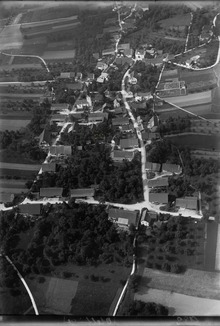
Giswil is a municipality in the canton of Obwalden in Switzerland.

Küsnacht is a municipality in the district of Meilen in the canton of Zürich, Switzerland.

Lachen is a municipality in March District in the canton of Schwyz in Switzerland.
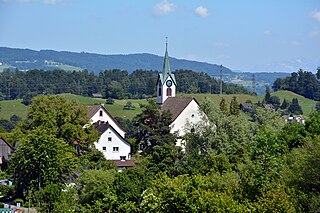
Langnau am Albis is a village in the district of Horgen in the canton of Zürich in Switzerland.

Beromünster is a municipality in the district of Sursee in the canton of Lucerne in Switzerland. On 1 January 2004 the former municipality of Schwarzenbach merged into the municipality of Beromünster. On 1 January 2009 the former municipality of Gunzwil merged into the municipality of Beromünster followed by Neudorf on 1 January 2013.
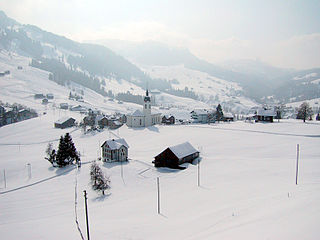
Oberiberg is a village and municipality in Schwyz District in the canton of Schwyz in Switzerland. The municipality comprises the village of Oberiberg and the hamlet and ski area of Hoch-Ybrig.
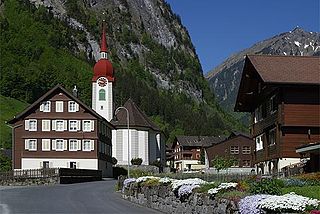
Isenthal is a municipality in the canton of Uri in Switzerland.

Pfäffikon is a municipality in the canton of Zürich in Switzerland. It is the seat of the district of the same name. It is not to be confused with Pfäffikon SZ on Lake Zurich but in the canton of Schwyz.

Bauma is a municipality in the district of Pfäffikon in the canton of Zurich in Switzerland.
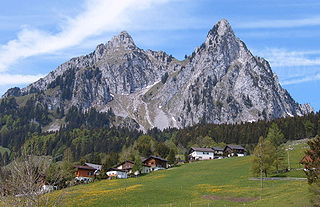
Alpthal is a village and municipality in Schwyz District in the canton of Schwyz in Switzerland. Besides the village of Alpthal, the municipality includes the ski resort of Brunni, and settlement of Eigen.

Muotathal is a village and a municipality in Schwyz District in the canton of Schwyz in Switzerland. The eponymous valley, the Muotatal, is formed by the Muota, which joins Lake Lucerne at Brunnen.
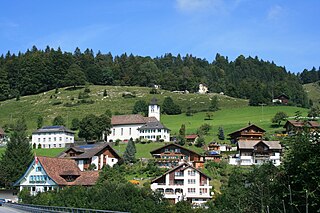
Innerthal is a municipality in March District in the canton of Schwyz in Switzerland.

Unterschächen is a municipality in the canton of Uri in Switzerland, situated in the upper Schächental.

Luthern is a municipality in the district of Willisau in the canton of Lucerne in Switzerland.
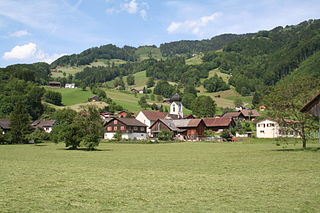
Schänis is a municipality in the Wahlkreis (constituency) of See-Gaster in the canton of St. Gallen in Switzerland.

Hinwil is a municipality in the district of Hinwil in the canton of Zürich in Switzerland.
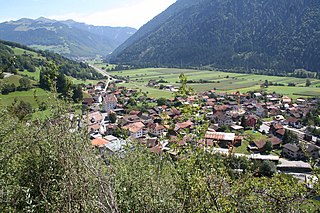
Grüsch is a Swiss village in the Prättigau and a municipality in the political district Prättigau/Davos Region in the canton of Graubünden. On 1 January 2011, the former municipalities of Fanas and Valzeina were merged with Grüsch.

Küblis or Kublis is a Swiss village in the Prättigau and a municipality in the political district Prättigau/Davos Region in the canton of Graubünden.

Thusis is a municipality in the Viamala Region in the Swiss canton of Graubünden. On 1 January 2018 the former municipality of Mutten merged into the municipality of Thusis.

Rothenbrunnen is a municipality in the Viamala Region in the Swiss canton of Graubünden.








